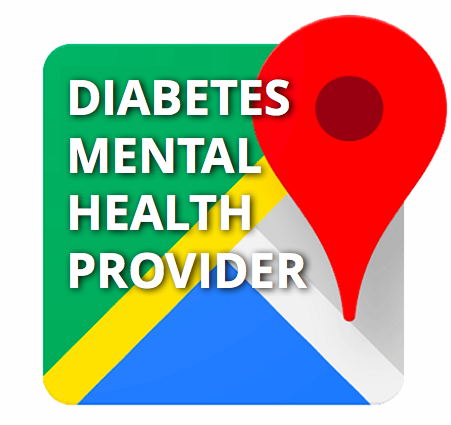How to Find Experienced Mental Health Care Providers for People with Diabetes
 By Amelia Dmowska
By Amelia Dmowska
A new online directory locates professionals who are trained to work with the specific mental health needs of people with diabetes
The American Diabetes Association (ADA) is partnering with the American Psychological Association (APA) to make it easier for people with diabetes to get quality mental health care.
The organizations have created a new directory of healthcare providers in the United States trained to meet the psychosocial and mental health needs of people with diabetes. Currently, this directory has about 60 providers, but this list will expand as more professionals apply to be included in the directory. Of these, about 40 provide pediatric services. If interested, just enter your zip code and whether you’re looking for adult or pediatric services, and the directory will identify a diabetes-trained healthcare provider nearby. Clicking on a specific name pulls up the type of insurance that provider accepts, their address, their phone number, and more.
Though most of these professionals are based in major US cities, about a third do provide telemedicine (remote) care. To search for telemedicine providers, click here.
Mental health is central to diabetes care, especially because anxiety, depression, and diabetes distress – feeling overwhelmed, worried, or burnt out – are common. At any given time, an estimated 39% of people with type 1 diabetes and 35% of people with type 2 diabetes experience significant levels of diabetes distress, yet it can be hard to find mental health professionals who specialize in diabetes.
The providers listed in this directory must have either completed the ADA-APA’s continuing education program in diabetes mental health or have two or more years of experience working with people who have diabetes.
Diabetes management is demanding, so it’s completely normal for people to feel exhausted or frustrated at times. However, if you feel frustrated, anxious, or burnt out for an extended period, generally more than two weeks, you may want to seek help. Mental health providers with diabetes-specific training can help people find ways to feel more successful about managing their diabetes and more positive towards life as a whole.
To find a mental health provider who is trained to support people with diabetes close to you, click here.
For tips on navigating some of the stress and overwhelm of diabetes, see chapter two of Bright Spots & Landmines: free PDF download or $6 in paperback at Amazon.







